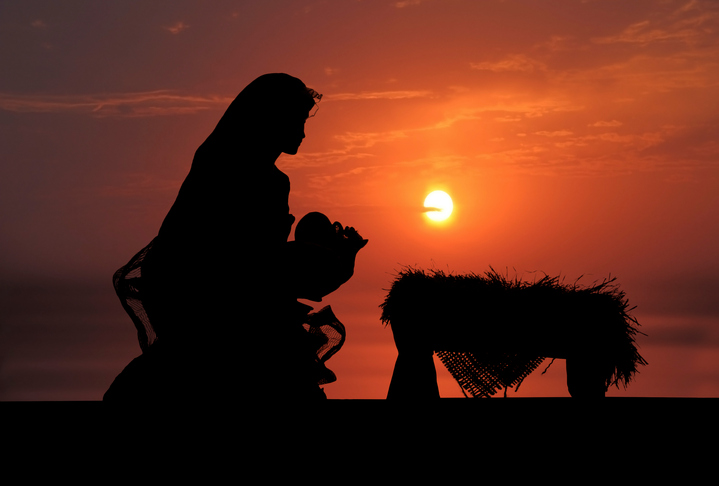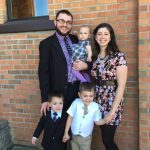Last week my oldest son turned five. I remember five years ago it hit me just how totally helpless babies are. I was terrified when we were being discharged from the hospital because somehow those crazy nurses trusted me to take care of this infant that couldn’t even lift his own head. Christmas had a special significance for me that year. The idea that God himself would become a human baby was ridiculous, the God that time itself worships as its Creator became something as totally powerless as an infant. What a truly incredible thing to believe.
Why would God do this? Why would he humiliate himself by becoming one of us?
The answer that our Catholic faith gives us is so extraordinary it’s scandalous. St. Thomas Aquinas summed it up this way, “The only-begotten Son of God, wanting to make us sharers in his divinity, assumed our nature, so that he, made man, might make men gods.” Or, as St. Athanasius’ put it, “God became man so that we might become God.”
See, we are all broken in some way; we are all truly helpless in the face of the challenges in our life. For some of us this helplessness is always before us and for others it may only present itself when something threatens our life or the life of a loved one to betray our powerlessness, our limitations, our finitude. For some this brokenness may be public, on display for all to see, a physical disability or illness that frames one’s whole life. Or some of us have hidden struggles, addictions, sexual disorders, loneliness, burdens unseen by others that we feel left to carry alone. And some of this brokenness may be spiritual, a lack of trust in God’s goodness that paralyzes us in fear or a perfectionism that desperately seeks the approval of others in order to feel valued.
But God entered into this helplessness, he became one of us so that we may become like Him. Yes, Jesus came to heal us of our brokenness and save us from our sins, but that’s not the end of the story. St. Peter said that Jesus came so that we may become “partakers of the divine nature” (2 Pt: 1:4). God didn’t come just to restore us, he came to make us divine! He didn’t just save us from our sins, he saved us for eternal life. He came to bridge the gap between God and man so that we could participate in the very life of the Holy Trinity.
God meets us where we are at, he comes to us in our brokenness, he enters into our helplessness to draw us to himself. We don’t believe in a God who’s wrath needed to be satiated by the blood of his Son, we believe in a God who so desperately loves us and wants us to share in his own divine life that he would descend to our level and pay the debt of sin that we could not pay ourselves.
We encounter this transformative love of God most powerfully during the liturgy. Next time you go to Mass, especially as you celebrate the Christmas liturgy, pay attention to the words the priest says at the altar as he mixes the water and wine, “May we come to share in the divinity of Christ who humbled himself to share in our humanity.” Bring your brokenness, your sins, and your wounds to the altar and let the Lord take your helplessness upon himself and not just heal your wounded nature, but transform it into something divine.

 Paul Fahey is a husband, father, and a parish director of religious education. He is a student of Theology, History, and Catholic Studies. If you like what he has to say, check out his blog,
Paul Fahey is a husband, father, and a parish director of religious education. He is a student of Theology, History, and Catholic Studies. If you like what he has to say, check out his blog,